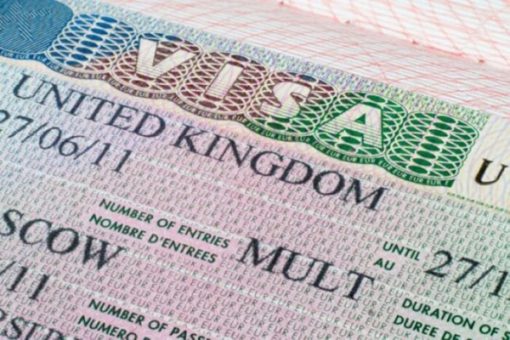
The United Kingdom is reportedly considering restrictions on visa applications from countries whose citizens are most likely to overstay their approved stays and seek asylum.
According to The Times, the Home Office has identified Pakistan, Nigeria, and Sri Lanka as the nationalities most affected by the new measures.
Naija News noted that the report highlights that nationals from these countries often overstay their visas and later apply for asylum, a process that, if successful, allows them to remain permanently in the UK.
As a result, the Home Office is looking into tougher restrictions for future visa applicants from these nations, particularly for work and study visas.
A Home Office spokesperson stated, “Our upcoming Immigration White Paper will set out a comprehensive plan to restore order to our broken immigration system. To tackle abuse by foreign nationals who arrive on work and study visas and go on to claim asylum, we are building intelligence on the profile of these individuals to identify them earlier and faster.”
The spokesperson emphasized that the visa system would be under constant review, and action would be taken if trends emerge that undermine immigration rules.
“Where we detect trends, which may undermine our immigration rules, we will not hesitate to take action,” the spokesperson added.
Further details of the government’s proposed immigration reform are expected to be published in the Immigration White Paper later in May.
This document will provide a comprehensive framework for the changes, aiming to restore order to the UK’s immigration system and ensure that it is more efficient and secure.
Nigerians have already felt the impact of the UK’s immigration reforms over the past two years, particularly in relation to student visas, work permits, and visa approvals.
Tighter rules introduced under former Prime Minister Rishi Sunak, such as stricter regulations on dependents and post-study work opportunities, have led to a sharp decline in international student applications to the UK.
Many Nigerians, faced with increasingly difficult visa conditions, have turned to the US as an alternative destination. However, this option has also become less viable due to stricter immigration policies under US President Donald Trump.
The US has increased its scrutiny of student visa holders, with warnings that students who are deemed not to serve the country’s interests could face deportation.
A 2024 report revealed a significant rise in Nigerian visa rejection rates to the UK, from approximately 1 in 31 applications in late 2022 to 1 in 8 by late 2023.
This increase led to a 63 percent drop in the number of visas issued to Nigerians compared to the previous year. The financial burden of non-refundable application fees, combined with these higher rejection rates, has intensified pressure on Nigerian applicants.
The British government has earned over ₦40 billion from processing visas for Nigerian nationals between June 2023 and June 2024, according to TheCable.
This highlights the significant financial relationship between the UK and Nigerian applicants, despite the growing challenges posed by the tightened visa policies.
African economists and development experts have urged citizens from developing nations, including Nigeria, to reconsider seeking opportunities abroad.
They emphasize the need for these individuals to stay in their home countries and contribute to their nations’ development, rather than leaving in search of better prospects overseas.

